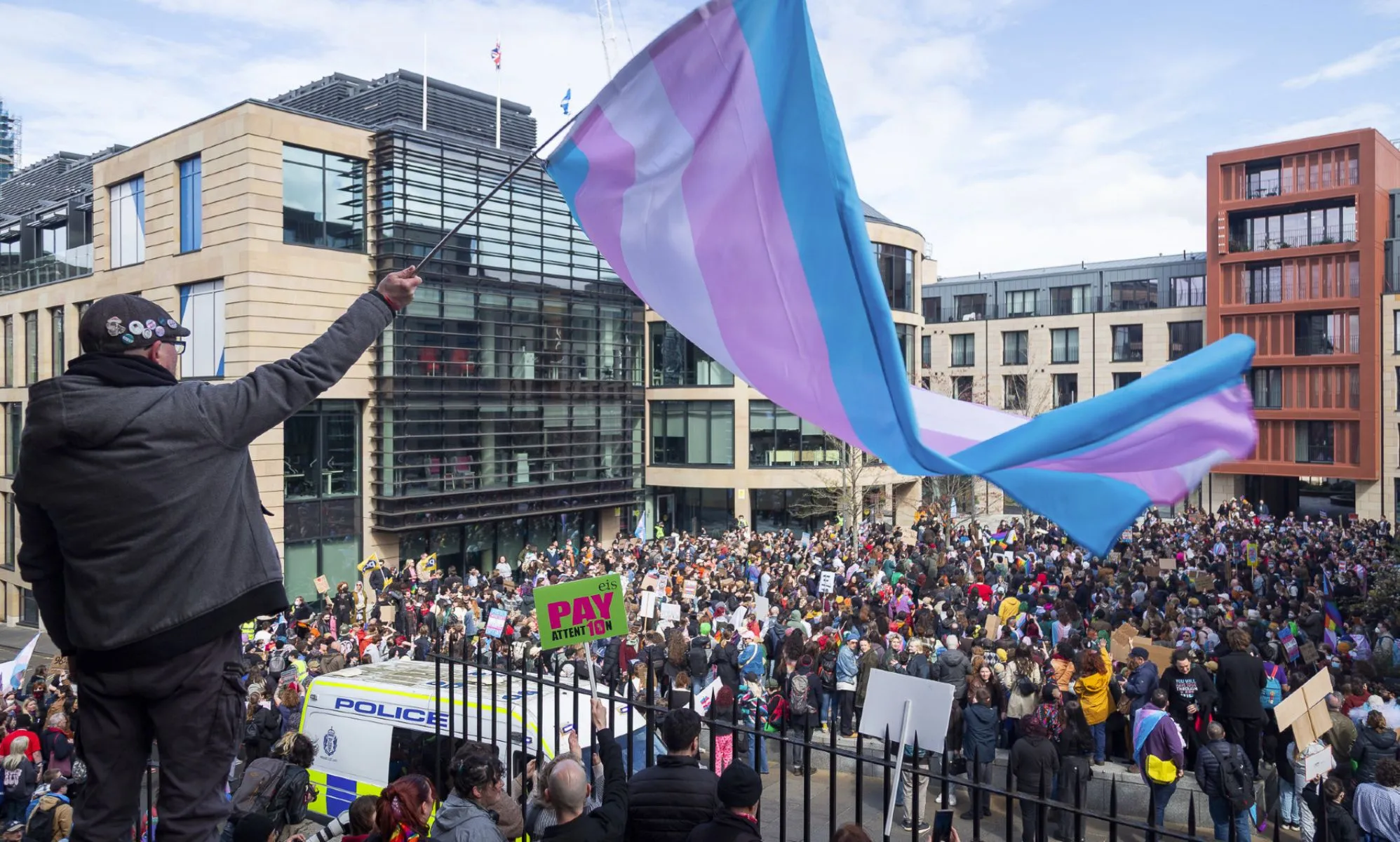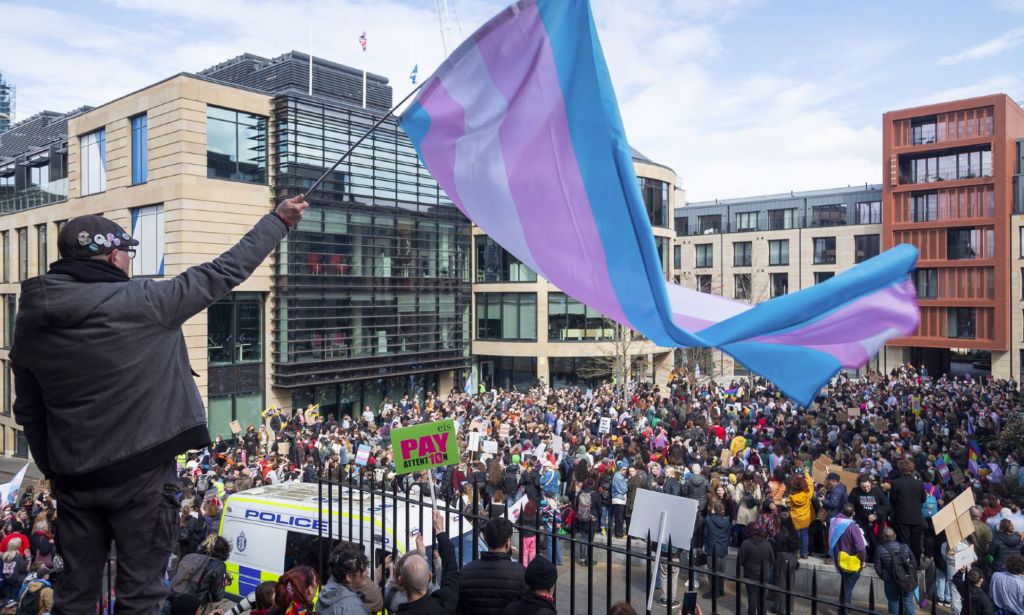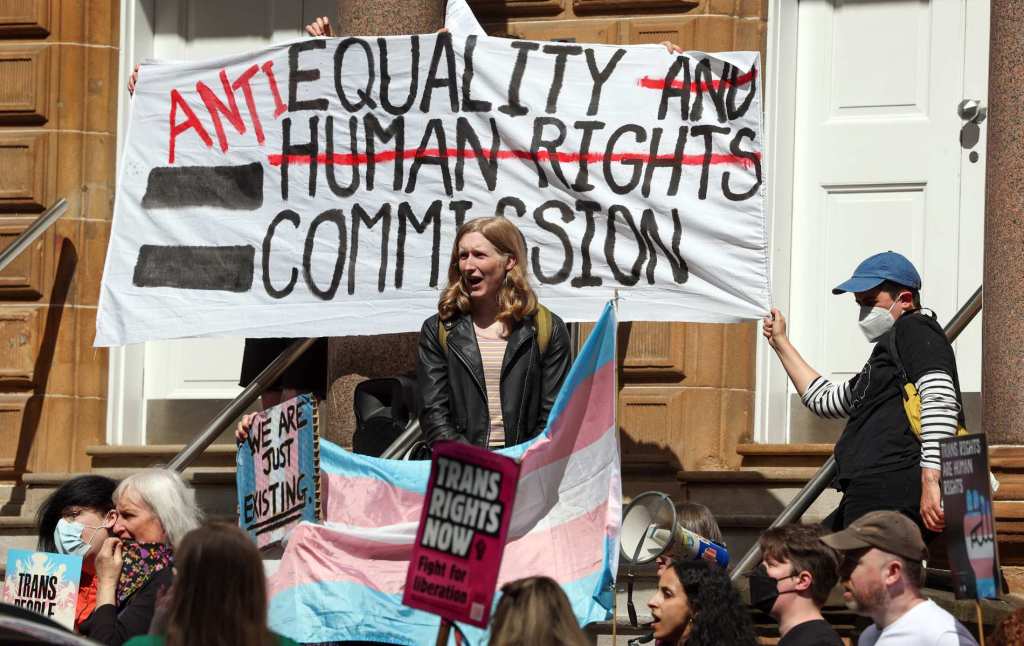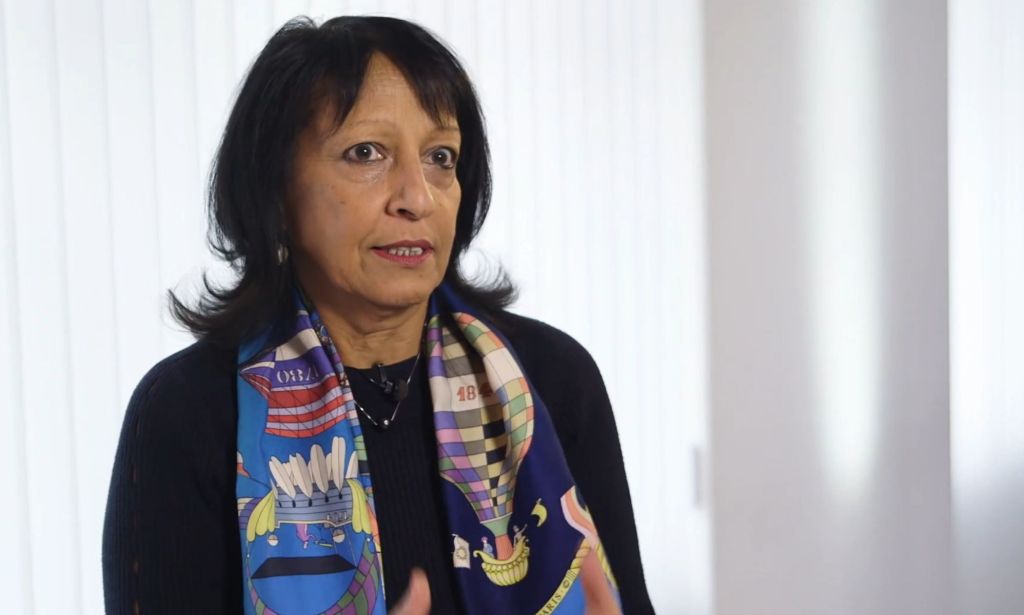 June 12 2025, 08:15
June 12 2025, 08:15 The chairwoman of the UK’s equalities watchdog thinks guidance on trans access to single-sex spaces could become law by early next year.
Appearing before a parliamentary committee on Tuesday (11 June), Kishwer Falkner, who heads up the Equality and Human Rights Commission (EHRC), said officials calculated that the guidance could become “statutory” within “seven or eight months” and ready to be passed by parliament in January.
The EHRC, seen by many as controversial because of its policies on trans rights, began consulting on proposed updates to guidance for single-sex service providers following the recent Supreme Court ruling on the 2010 Equality Act’s definition of “women” and “sex”.

As part of the consultation, the regulator published interim guidance which called for trans people to be banned from public facilities consistent with their gender identity and, in some circumstances, also from those associated with their birth sex.
Falkner said the clause banning trans people from all gendered public facilities was “one of the more ambiguous implications” and would become more “comprehensive” once the public consultation on the proposed changes had come to an end.
Critics claimed that the consultation period, originally set to last just two weeks, had been “rushed” and was “unlawful.” This has now been stretched to six weeks, following a backlash.
Launching a legal challenge, the National Council for Civil Liberties, also known as Liberty, called for the time frame to be extended to a minimum of 12 weeks.
Asked by members of the Women and Equalities Committee whether the consultation was being rushed, Falkner said the EHRC had tried to “strike the balance between accuracy and clarity on the one hand, and speed [on the other],” adding that a decision had been made to “hand it to the government as soon as we conceivably could”.

The consultation period would conclude by 30 June, she went on to say, and officials would then take “the best part of a month” to review responses. The outcome is expected to be revealed to women and equalities minister Bridget Phillipson by July.
“What happens to it after July is for government,” Falkner continued. “But we expect [the] government to have laid it [before] parliament, and for it to have succeeded its parliamentary stages, by [the] autumn.”
EHRC says trans people ‘have not lost any rights’
Falkner was also quizzed by committee members on the EHRC’s stance on trans people’s rights to accessing public facilities.
Confronted with the growing fears that, if made statutory, the guidance could prevent transgender people accessing toilets or changing rooms, Falkner claimed trans people had not lost any rights.
“When the Supreme Court is saying you haven’t lost a right, then I don’t see why this particular group of people would become fearful… the rights that exist are rights in terms of exemptions to single-sex services and separate sex services,” she said.

Asked what she would say to trans people who had told committee members they had developed urinary tract infections from the fear of using toilets, Falkner called for them to “respond to our consultation”.
She also argued that the Gender Recognition Act, which allows trans people to change their gender markers on legal documents, made the “practical implementation” of the Equality Act “very difficult”.
In a statement given to PinkNews, Trans+ Solidarity Alliance legal researcher Jess O’Thomson said Falkner’s comments were “yet more evidence of the unsuitability of the EHRC’s current leadership”.
O’Thomson went on to say: “The idea that the Equality Act, a law intended to protect trans people from discrimination, was supposed to function as a transgender bathroom ban, is just not credible. Either the EHRC is wrong in its interpretation of the law, or the operation of the law has now become completely divorced from what its authors envisioned, and from international human rights law norms.”
‘Women-only groups must either exclude trans women or admit men’
Given a hypothetical example of how the EHRC’s guidance would affect trans people’s access to certain spaces, Falkner was asked by committee member Rachel Taylor whether a women-only walking association could be trans-inclusive.
Falkner said that the answer would be dependent on whether the group was single-sex or mixed-sex, adding: “If you’re wishing to provide a single-sex service, I think you should perhaps look very closely at who you are permitting to be part of that service.”
Taylor argued that, under this interpretation, the association would either have to exclude trans women, or include men. Falkner responded by saying it would depend on the “service you wish to provide”.
Labour MP Taylor responded: “I thought I’d make that clear. I wanted to set up a women’s walking association that was inclusive of trans women. Can I do that or can’t I?”
Pressed to answer the question, Falkner said that under the EHRC guidance, women-only groups which opt to be single-sex must exclude trans women “in order to secure the protections available in the Equality Act.”
Asked by another committee member how she would know whether participants were trans or cisgender, Falkner replied: “I could make an informed judgment but I would not be able to definitively tell, particularly if you said you were not [transgender].”
The post EHRC chair says trans guidance could become law within months appeared first on PinkNews | Latest lesbian, gay, bi and trans news | LGBTQ+ news.